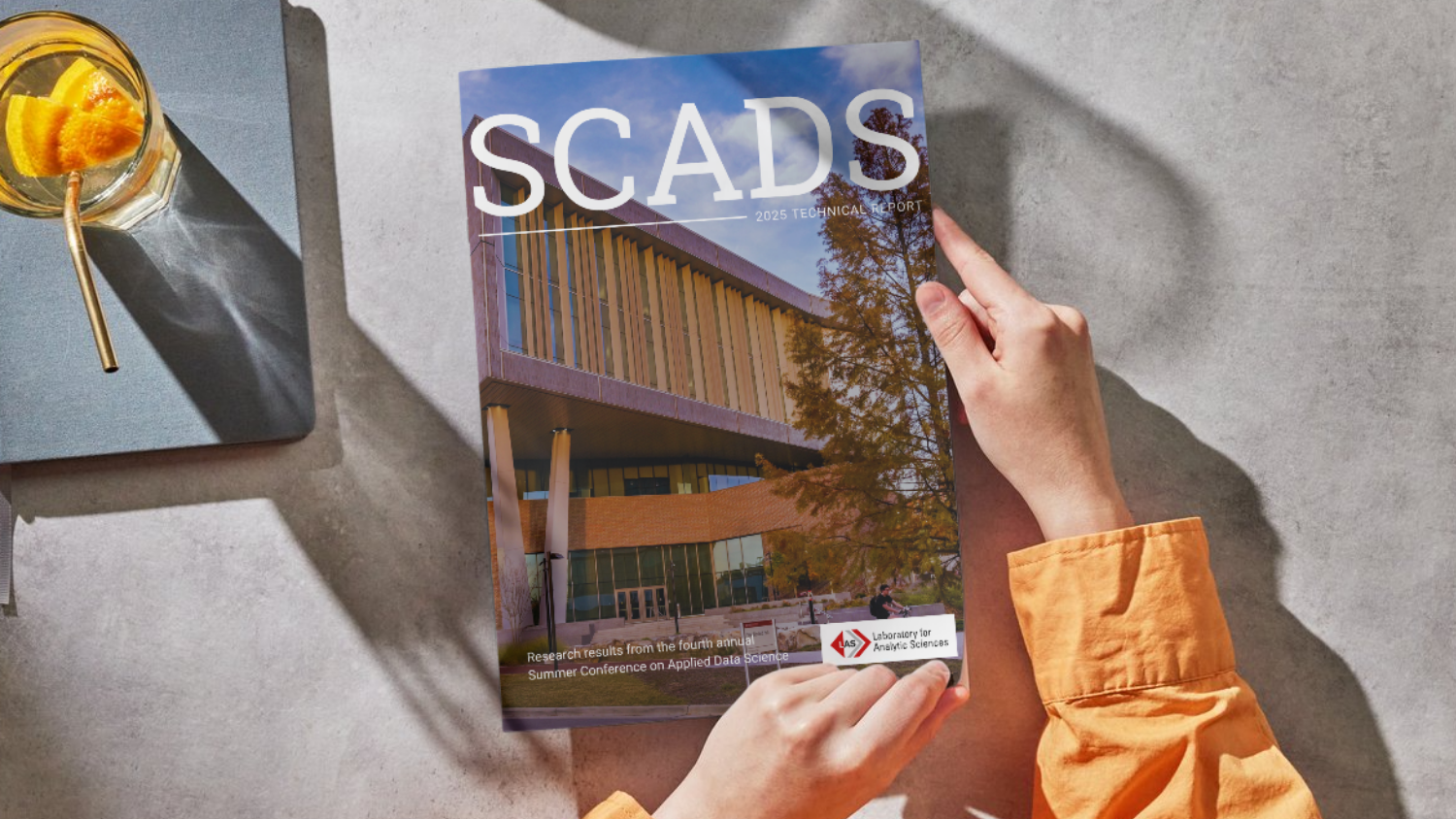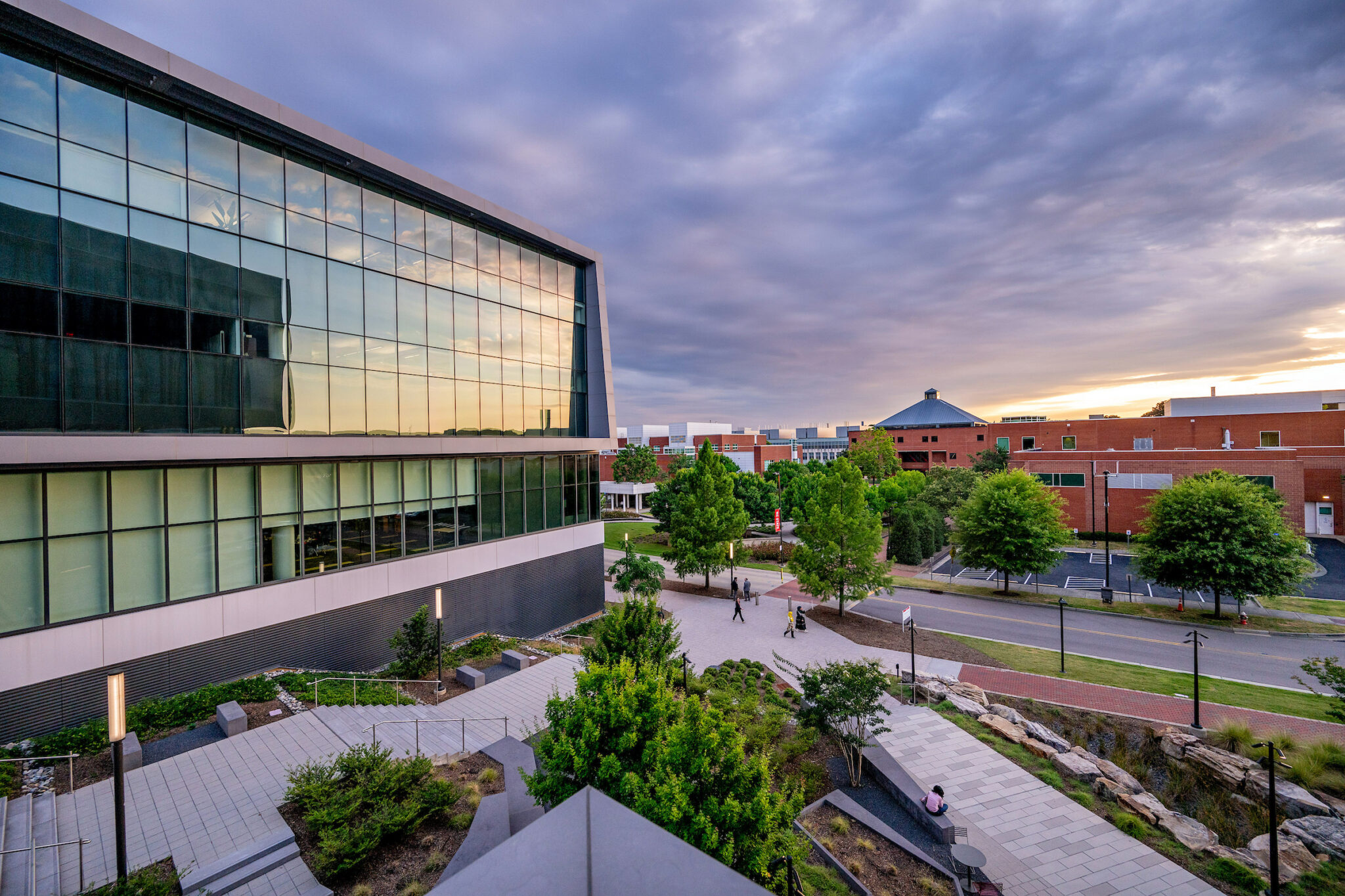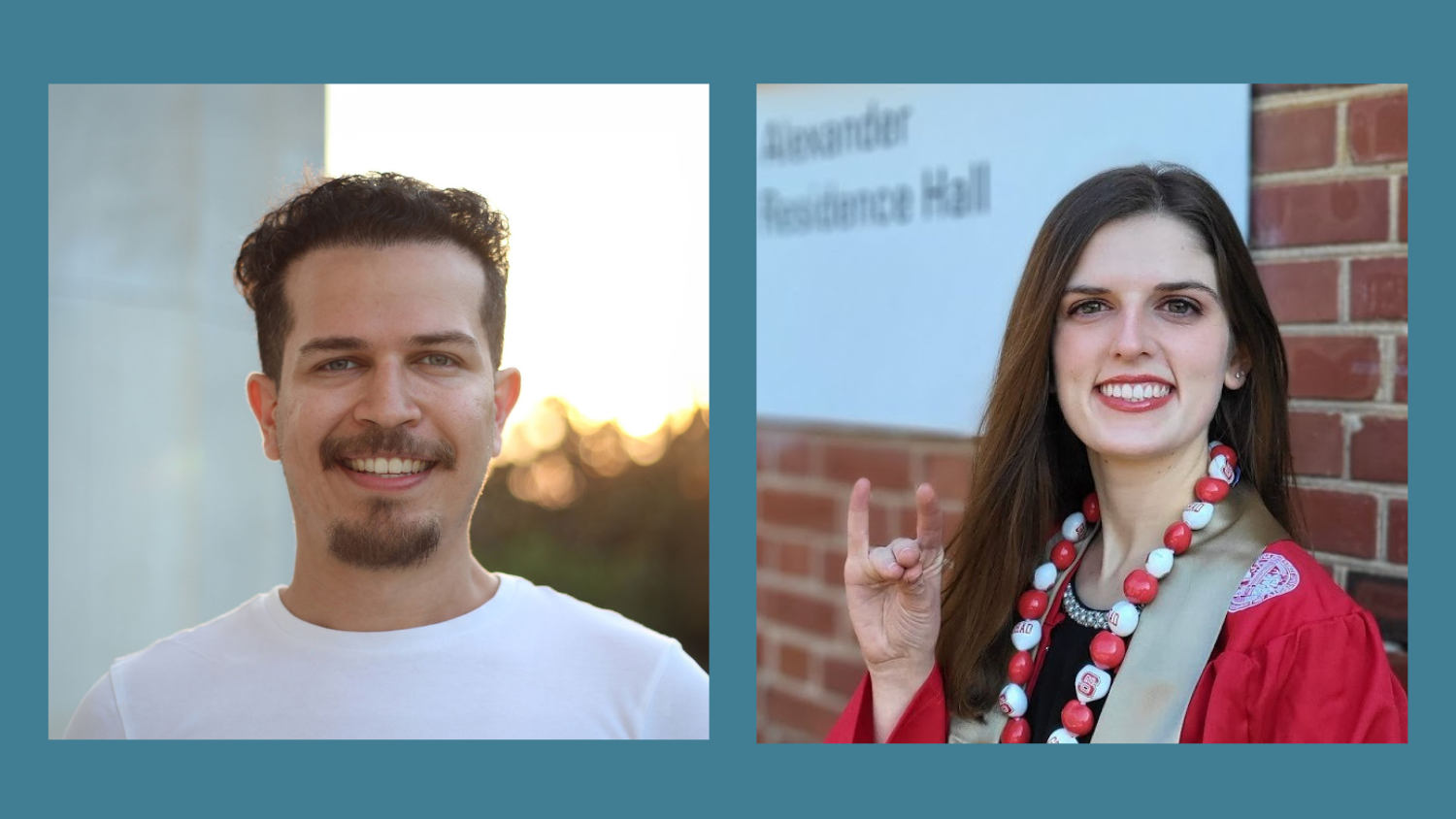Richland to Raleigh: A Model for University and National Lab Partnerships
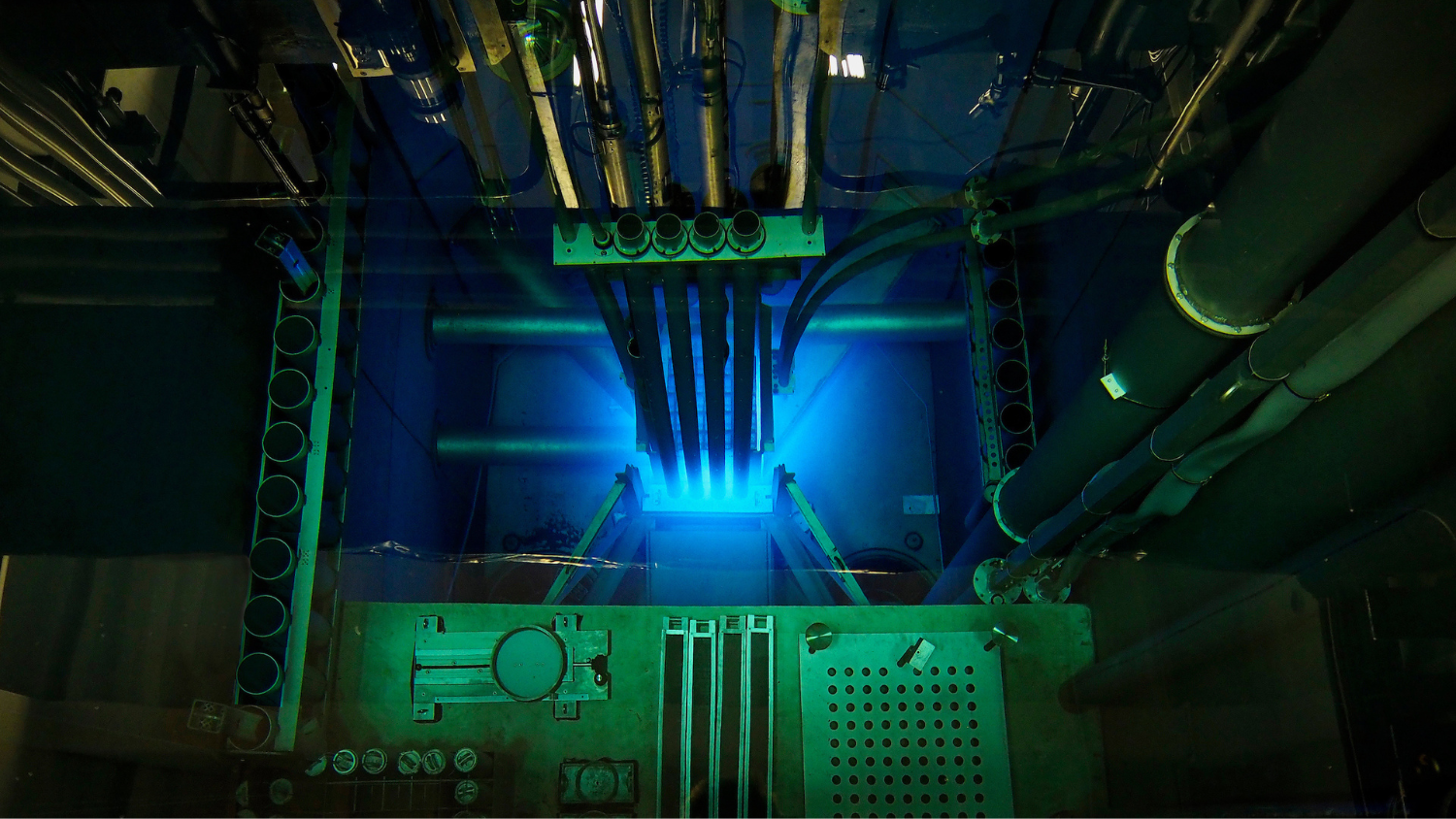
North Carolina State University’s collaboration with the U.S. Department of Energy’s Pacific Northwest National Laboratory provides unique research experiences for students and a talented workforce pipeline for the lab.
When Eva Brayfindley began her five-year doctoral program in applied mathematics at NC State, she didn’t realize that political science and nuclear engineering would soon play a major role in her education. “I came in not really knowing what I wanted to study,” she says. A professor suggested she work with the Consortium for Nonproliferation Enabling Capabilities (CNEC), a consortium of university and national laboratory partners working to prevent the global spread of nuclear weapons.
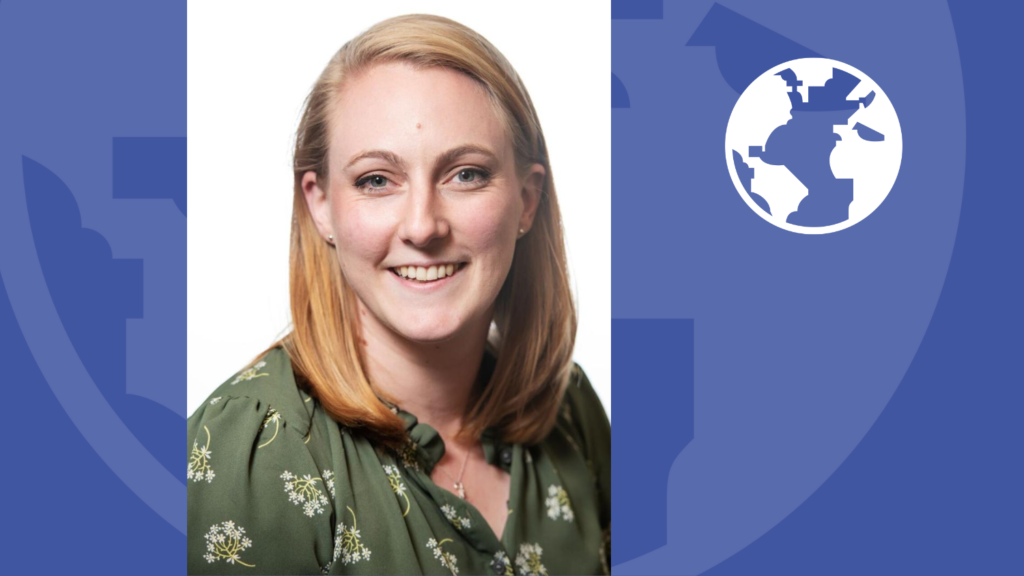
Through connections forged at CNEC, she landed an on-site internship with Pacific Northwest National Laboratory in Richland, Washington. “I came out to PNNL as a graduate intern, and I worked under a mentor at PNNL, Robert Brigantic, for the summer,” she says.
It was a summer that changed Brayfindley’s career path. “The project I worked on at PNNL actually became my graduate dissertation research.”
Her project and dissertation were featured in CNEC’s final annual report.
“[Brayfindley] led the PNNL team that focused on the International Atomic Energy Agency (IAEA) Technology Challenge 2016 which aimed to process videos of spent fuel in cooling ponds captured via an Improved Cerenkov Viewing Device (ICVD), and turn these into a single composite image with improved resolving power, thus improving the confidence of item counting. This work developed into Eva’s dissertation topic at NC State, and Eva joined PNNL as a full-time staff member after she graduated. She now continues to do research related to nonproliferation and international safeguards.”
Brayfindley is now a senior data scientist at PNNL.
“[At NC State] I got a well-rounded education, not just in mathematics, but also in the domain space that I was working in,” she says.
Coast-to-Coast Collaboration
Richland is 2,740 miles across the country from Raleigh, but PNNL chose NC State as a research partner for its shared interests in data science and analytics, materials science, work with the intelligence community, and nuclear nonproliferation.
Through PNNL’s Distinguished Graduate Research Program, NC State students can spend six months at PNNL immersed in data science research, including text analytics, streaming data and spatiotemporal analytics.
“National labs provide a rich research experience outside of a university setting,” says Alyson Wilson, associate vice chancellor for national security and special research initiatives. “Students and faculty have a hands-on opportunity to work on real-world problems. Students can work as interns and graduate fellows on scientific research that is of national interest.”
In turn, the universities offer a workforce pipeline to the labs. When students are connected to labs for internships, they may decide to work there after graduation.
“That internship just cemented for me, ‘Not only am I going to do national lab work, but I’m also going to go to PNNL, full stop,’” Brayfindley says.
PNNL and LAS’s Technical Exchanges
PNNL’s talented researchers also make an impact at the university. Through a partnership with the university’s Laboratory for Analytic Sciences (LAS), Brian Kritzstein, an advisor and program manager within PNNL’s National Security Directorate, is stationed at LAS to conduct research related to data analytics and national security.
Last year, a team of subject matter experts from PNNL and LAS presented a workshop for attendees at the inaugural Summer Conference on Applied Data Science at NC State. They presented interactive technical courses on natural language processing, knowledge graphs, neural networks, and recommender systems.
In 2020, LAS and PNNL hosted a workshop to help data scientists learn about few-shot learning techniques and how they might use them to create new machine learning models. Few-shot learning helps machine learning practitioners understand the scope and limitations of what is possible when there are few examples available to build a model.
LAS sponsors and PNNL participates in a monthly Laboratory Research Technical Exchange meeting focused on national laboratory outreach. The meetings introduce technical topics to more than 100 attendees and support informal technical exchanges, many of which lead to further conversations in support of community research needs.
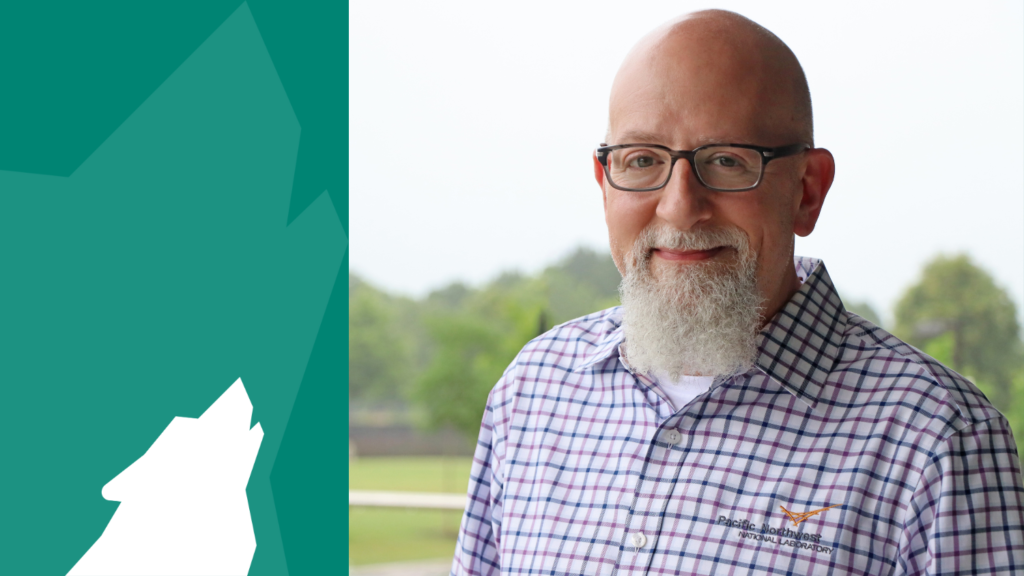
“It’s a unique model to have representatives from [a U.S. government] agency on a college campus providing insight into the needs of the intelligence community,” Kritzstein says. “Everyone who selected LAS as their rotational job listed collaboration as a reason for why they were interested in coming here.”
Building Better Language Models for the Nuclear Domain
Karl Pazdernik, a senior data scientist at PNNL, is one of three employees with joint appointments at NC State. He’s a research assistant professor, teaching data science courses and mentoring students in PNNL’s Distinguished Graduate Research Program.
“Teaching at NC State allows me to engage with a variety of students from different departments,” Pazdernik says. “I reach more students who might be interested in working in a national lab later on. In my directorate, we tend to be very focused on delivering capabilities to sponsors, which doesn’t always leave us time for investigating fundamental statistics, mathematics, and AI. And that’s where partnering with faculty and students is a great opportunity, because that’s their priority.”
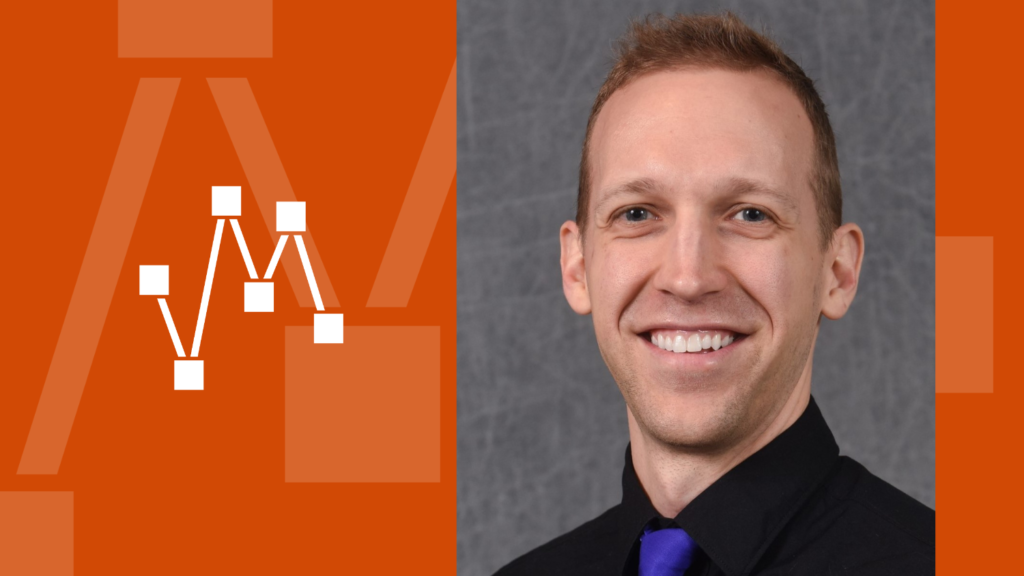
After earning his Ph.D. in statistics, Pazdernik spent two years working in industry, then decided he wanted a more research-active role. He wound up as a postdoc at NC State’s Consortium for Nonproliferation Enabling Capabilities, where Brayfindley was involved, and then joined PNNL. Now at the lab, he runs an open-source data analytics program that leverages natural language processing and computer vision.
“I tell [friends and family] to watch the news because whatever is in the news, that’s usually what I’m working on,” Pazdernik says. “The interest in understanding artificial intelligence and specifically generative AI, I mean, that’s what I do on a day-to-day basis. I try to understand these technologies and figure out how I can use them for national security purposes.”
Powerhouse partnerships like the one between PNNL and NC State enable students, faculty and laboratory researchers to discover novel technology. These discoveries not only strengthen national security but can be applied to a variety of industries across a range of sectors. Learn more about educational and research opportunities for staff and faculty through NC State’s National Laboratory Initiative or contact Brian Kritzstein at brian.kritzstein@pnnl.gov.
- Categories:

